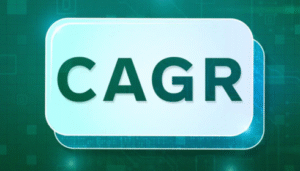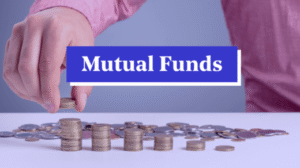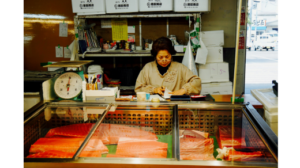1. What is a digital wallet?
Answer: A digital wallet is an electronic tool that allows you to store and manage your payment information, such as credit card details, bank accounts, and even cryptocurrencies, on your smartphone or other devices.
2. Are digital wallets secure?
Answer: Digital wallets can be secure if used properly. They use encryption and authentication techniques such as two-factor authentication (2FA) and biometric identification to protect your data.
3. What are the advantages of using a digital wallet?
Answer: Digital wallets are convenient, faster, and more secure, and they can store multiple payment methods in one place. They can also make it easier to manage loyalty cards, tickets, and other forms of identification.
4. Can I use a digital wallet for online shopping?
Answer: Yes, digital wallets are often used for online shopping. You do not have to enter your credit card information each time you want to make a payment, and the checkout process is much faster.
5. How do I get a digital wallet?
Answer: A digital wallet can be obtained by downloading an app (for example, Apple Pay, Google Pay, PayPal), linking your credit or debit cards, and then setting up security features such as PIN codes or biometrics.
6. What is 2FA in a digital wallet?
Answer: 2FA provides another layer of security in a digital wallet. In addition to your password, it asks for a second verification process like sending a code to your phone before opening the digital wallet.
7. How can I ensure that my digital wallet is secure?
Answer: To keep your wallet safe, use a good password, turn on 2FA, keep updating the app, do not perform transactions on public Wi-Fi, and always be careful before linking accounts.
8. How many kinds of digital wallets exist?
Answer: There are numerous kinds of digital wallets. Those include:
Mobile wallets, like Apple Pay, Google Pay
Online wallets, such as PayPal, Venmo
Cryptocurrency wallets, for example Coinbase, MetaMask
Hardware wallets (to store the digital assets in an offline form)
9. What is the difference between a mobile wallet and an online wallet?
Answer: A mobile wallet is accessed via a smartphone app and can be used for in-store and online purchases. An online wallet is primarily used for online transactions and typically accessed via a web browser.
10. Is my payment information safe in a digital wallet?
Answer: Yes, digital wallets securely encrypt your payment details. Many wallets also employ tokenization methods where sensitive information is replaced with unique identifiers that make this kind of hacking ineffective.
11. Is it possible for a hacker to steal my money through hacking my digital wallet?
Answer: It is theoretically possible, but the risk is low if you take proper security measures. Most wallets have strong encryption and security features, though the user must be careful with strong passwords and 2FA.
12. What is tokenization in digital wallets?
Answer: It is tokenization in which, instead of your actual payment card details, a unique identifier (a token) replaces this information in transactions. Hence, it is quite difficult for hackers to access the real payment information.
13. How do digital wallets protect my personal information?
Answer: Digital wallets use encryption, tokenization, and secure protocols (e.g., SSL/TLS) to protect your personal and payment information. In addition, many wallets use biometric authentication (e.g., fingerprint or face recognition) for added security.
14. Is it safe to store my credit card in a digital wallet?
Answer: Generally, storing your credit card in a digital wallet is safe, provided that you use a secure wallet that features encryption and authentication. Make sure that your phone or device also has a lock or password with a biometric feature.
15. What happens if I lose my phone with my digital wallet?
Answer: If you lose your phone, most digital wallets have security features that will remotely lock or wipe the device. You can also turn off your wallet from its application or website.
16. Can my digital wallet be recovered if I forget my password?
Answer: Most digital wallets offer a password recovery option, such as email verification or answering security questions. Some may require 2FA to restore access.
17. What is biometric authentication in digital wallets?
Answer: Biometric authentication uses your unique physical characteristics, such as your fingerprint or facial features, to verify your identity and unlock your digital wallet.
18. Is it safe to use public Wi-Fi when accessing my digital wallet?
Answer: Avoid accessing your digital wallet via public Wi-Fi, as this is the most common method of hacking. If you must, access it via a VPN.
19. How do I know my digital wallet app is secure?
Answer: Check if the app offers encryption, supports 2FA, has a good reputation, and receives regular updates. Look for reviews and ensure it’s available from a trusted app store.
20. What should I do if I suspect fraud on my digital wallet?
Answer: Immediately report the fraud to the digital wallet provider, freeze your account, change your passwords, and monitor your bank statements for any suspicious transactions.
21. Can I use my digital wallet outside my country?
Answer: Yes, most digital wallets support international transactions, but may charge fees. Check if your wallet supports international transactions and if your card is enabled to be used in other countries.
22. What is a safe digital wallet app?
Answer: Secure digital wallet apps usually have robust encryption, secure payment protocols, and extra layers of authentication such as 2FA or biometric verification.
23. Can I link more than one card to one digital wallet?
Answer: Yes, most digital wallets enable linking multiple cards, such as credit and debit cards, which increases the convenience of switching between alternatives.
24. What is the hardware wallet?
Answer: A hardware wallet is a physical device that stores cryptocurrencies offline, hence a very secure product against any online hacking attempts. This is the best for long-term storage of your digital assets.
25. What happens if my digital wallet is hacked?
Response: Report the theft to the provider of the wallet. If you can, freeze your accounts and change passwords immediately. Be alert for unusual activity related to your money.
26. Is it free to use digital wallets?
Response: Digital wallets are usually free to download, but there might be some costs associated with particular services like a peer-to-peer transfer or a transfer to a different country.
27. What is a virtual card in a digital wallet?
Answer: A virtual card is the digital version of your credit or debit card that is stored in your wallet. You can use it for online transactions without exposing your actual card information.
28. How do I update my digital wallet’s security settings?
Answer: Check your digital wallet app’s settings area to turn on or change any of the following security features, including PINs, passwords, 2FA, and biometric authentication.
29. What is the transaction history of a digital wallet?
Answer: A digital wallet’s transaction history records all of the payments, deposits, and withdrawals made from your wallet. You can keep track of what you are spending and what has happened with your account.
30. Can I store loyalty cards with a digital wallet?
Answer: Yes, many digital wallets allow you to store loyalty cards, gift cards, and other forms of identification for easy access during shopping or when using services.
31. Are digital wallets secure for contactless payments?
Answer: Yes, contactless payments are secure since they use encrypted data and tokenization. But you must make sure that your phone or device is secure and set up with proper authentication.
32. Can I use a digital wallet on multiple devices?
Answer: Yes, most digital wallets support synchronization on multiple devices. Just make sure each device is password-protected, PIN-locked, or biometrically locked.
33. How does the encryption work in a digital wallet?
Answer: Encryption is a form of securing your sensitive data in a code, which can only be decoded by a special key. Digital wallets encrypt your payment details and other personal information.
34. What should I do if I get suspicious emails or messages about my digital wallet?
Answer: Do not click on any links or share personal information. Report the suspicious communication to your wallet provider and delete the email or message immediately.
35. Can a digital wallet be hacked?
Answer: While no system is completely hack-proof, digital wallets with strong encryption, tokenization, and multi-factor authentication offer a high level of security. Always follow best practices to protect your wallet.
36. What is my digital wallet’s alternative?
Answer: Most wallets offer you the possibility to back up your information by using secure means such as cloud storage or external hardware. Be sure that you store your backup in a safe place.
37. Can I use my digital wallet to send money to other people?
Answer: Yes, most digital wallets let you send money to another user using the recipient’s email address or phone number, which can be instantaneous and low cost.
38. Are digital wallets safer than traditional cards?
Answer: Digital wallets are generally safer than traditional cards since they have the tokenization and encryption and the added security layers such as 2FA and biometric authentication.
39. How do I delete a payment method from my digital wallet?
Answer: You can delete a payment method from the wallet app’s settings. Find the payment method you want to delete and follow the instructions to delete it.
40. Can I use a digital wallet to store cryptocurrency?
Answer: Yes, most digital wallets, especially cryptocurrency-specific wallets, enable you to store and manage cryptocurrencies such as Bitcoin and Ethereum.
41. What are the risks of using a digital wallet?
Answer: Possible threats include hacking, fraud, loss of access to your device, and phishing attacks. Security best practices must be followed and awareness kept.
42. How do I know if my digital wallet app is legitimate?
Answer: Download apps only from reputable sources (e.g., the Apple App Store or Google Play Store) and check for reviews, ratings, and the provider’s credibility.
43. Can I link multiple bank accounts to my digital wallet?
Answer: Yes, most digital wallets allow linking of multiple bank accounts for ease of transactions.
44. What is the difference between an e-wallet and a digital wallet?
Answer: E-wallet refers to any type of wallet that holds payment information digitally, whereas a digital wallet is a more specific term that applies to the use of a wallet for mobile and online transactions.
45. How to protect my digital wallet from fraud transactions?
Answer: Use the strong password and enable 2FA, enable biometric login, and regularly track your wallet activity.
46. Can I make bill payments from a digital wallet?
Answer: Yes, some digital wallets do allow you to pay bills that include utility payments, subscription bills, and even tax payments using the app directly.
47. What is secure encryption in the digital wallet?
Answer: Encryption protects your payment data as it encodes it so only authorized parties can access or decode it. It prevents data breaches and fraud.
48. Can a digital wallet help me with budgeting?
Answer: Yes, most digital wallets offer budgeting tools, expense tracking, and transaction history to keep you on top of your finances.
49. Should I use only one digital wallet?
Answer: It’s up to you, but I highly recommend having just one trusted digital wallet for your primary transactions. Using more than one may give you more features or options for other payments.
50. How often should I update my digital wallet application?
Answer: You should be updating the digital wallet applications on a regular basis because this keeps security features, bug fixes, and improvements coming at you










Been using esportspnxbet for my esports bets. Site’s easy to use, and the odds are usually pretty good. Check it out if you’re into that kind of thing esportspnxbet